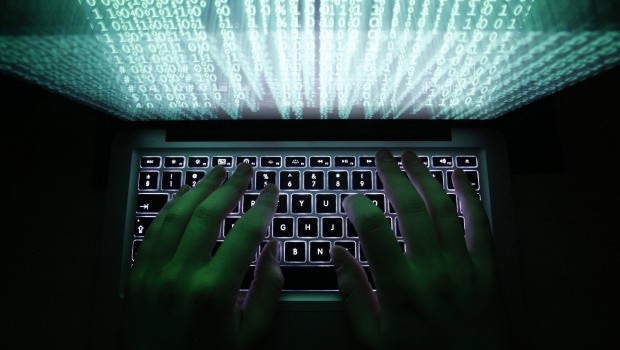
A man types on a computer keyboard in this February 28, 2013 illustration file picture. REUTERS/Kacper Pempel/Files
He confirmed that “the campaign will continue until this goal is achieved,” adding, “the files that were obtained after the hacking were sent to the security service affiliated with the dismissed Palestinian government in Gaza.”
Concerning the all-out cyber war on Israeli sites, Ismail told Asharq Al-Awsat that he was “one of the first people who called for this campaign and one of the key participants in it.” Ismail showed Asharq Al-Awsat a video, which he posted on YouTube on November 16, 2012, in which he called for “preparing for the launch of an electronic campaign against Israel.”
He said that he had “discussed the idea with hackers from Saudi Arabia, and that it was prepared for through [their] communication online.”
Ismail stressed that his motivation, and that of his fellow Arab and Muslim hackers to participated in the attack, was to “respond to the Israeli aggression crimes against our brothers in Palestine and to expose their violations to the whole world.”
The Algerian hacker said that “there is no specific number” of hackers participating in the cyber war. He claimed that “thousands of youth took part” with “all, or most, of them” being from Arab backgrounds. Another hacker who claimed to have participated in the attacks posted a message on his Facebook account claiming that participants from several Arab countries took part in the attack, including Syria, Lebanon, Palestine, Jordan, Egypt, Sudan, Algeria, Indonesia, Morocco, Turkey, Tunisia and Saudi Arabia.
Ismail said that Anonymous, an informal group of hackers that was established in the United States, was an inspiration for his own group. “Now, every group of hackers takes this name. This is why the Arab and Muslim hackers taking part in this operation were also called the Anonymous group.” He also claims that his group operates in a manner similar to Anonymous, saying, “There is no one in the group who issues orders on what to do or not to do or a person in charge … it is enough to propose an idea to [the other hackers] and ask them to take part. Every person takes part in the attack depending on his experiences and special skills.”
Ismail denied rumors that the current cyber war has been fabricated by Israel so that it can tell the international community that Arabs have attacked it in the hope of gaining sympathy. “When we attack it, our crimes against it do not match one quarter of what Israel is doing against the Palestinian people.”
He said that he and his group had “managed to obtain secret files through hacking networks and using many electronic tricks, such as sending a message to an Israeli programmer using his wife’s name.”
He claimed that he “managed to obtain the names of members of the Israeli Army and units, and passwords for hundreds of emails and Facebook accounts,” saying that many of the passwords were to accounts owned by Israeli businessmen. Furthermore, he said that he had obtained access information to “more than 500 bank accounts,” and that “a thousand secret documents belonging to the Israeli authorities” were downloaded during the attack.
Additionally, the hacker who posted his assessment of the attack on his Facebook page claimed that “more than 20,000 Facebook accounts were hacked, along with approximately 5,000 Twitter accounts and 30,000 Israeli bank accounts. Several sites were also disabled, most importantly those of the stock exchange, Mossad and the security and intelligence services. More than 400 key sites were also hacked.”

Trackbacks/Pingbacks